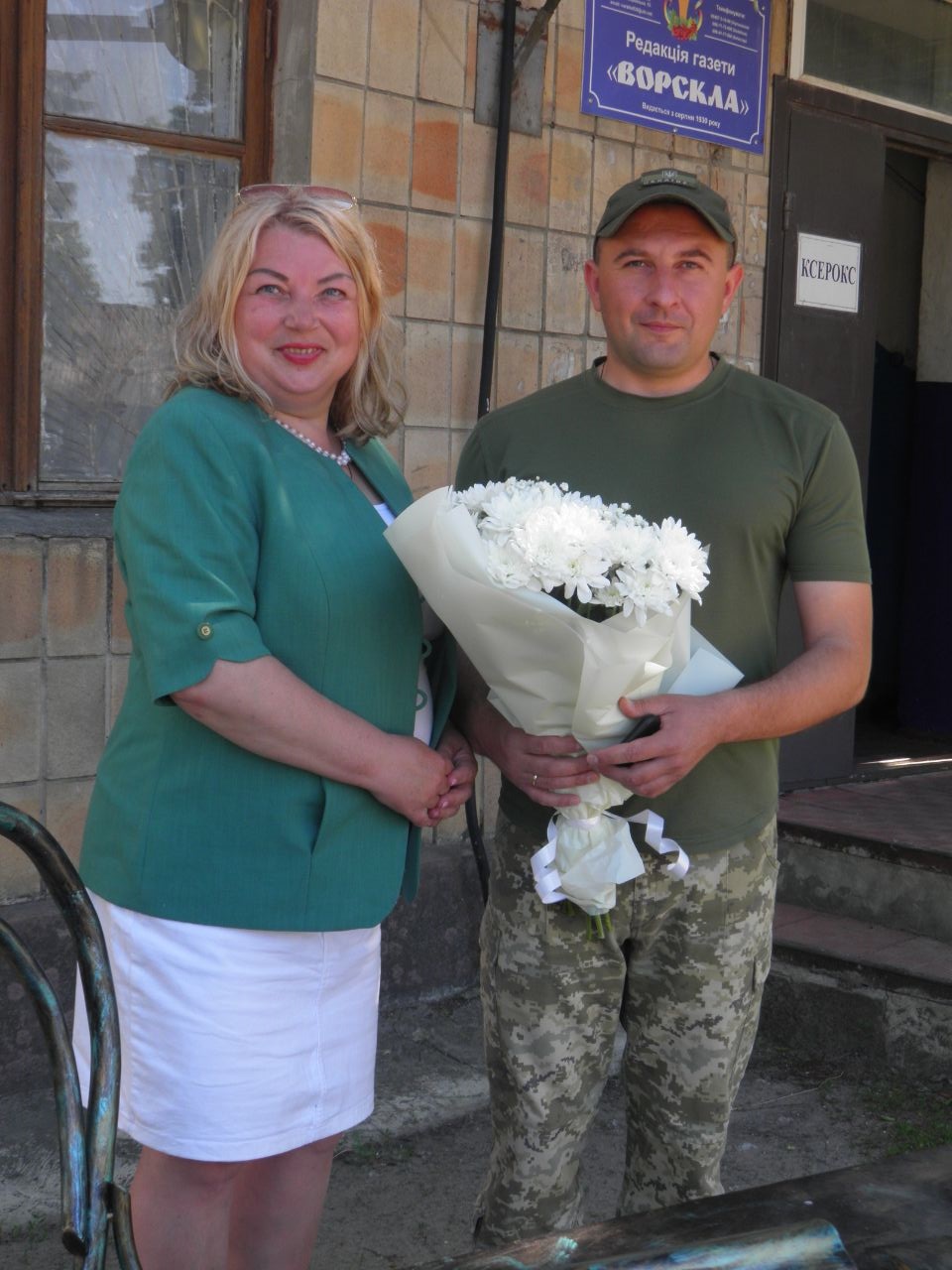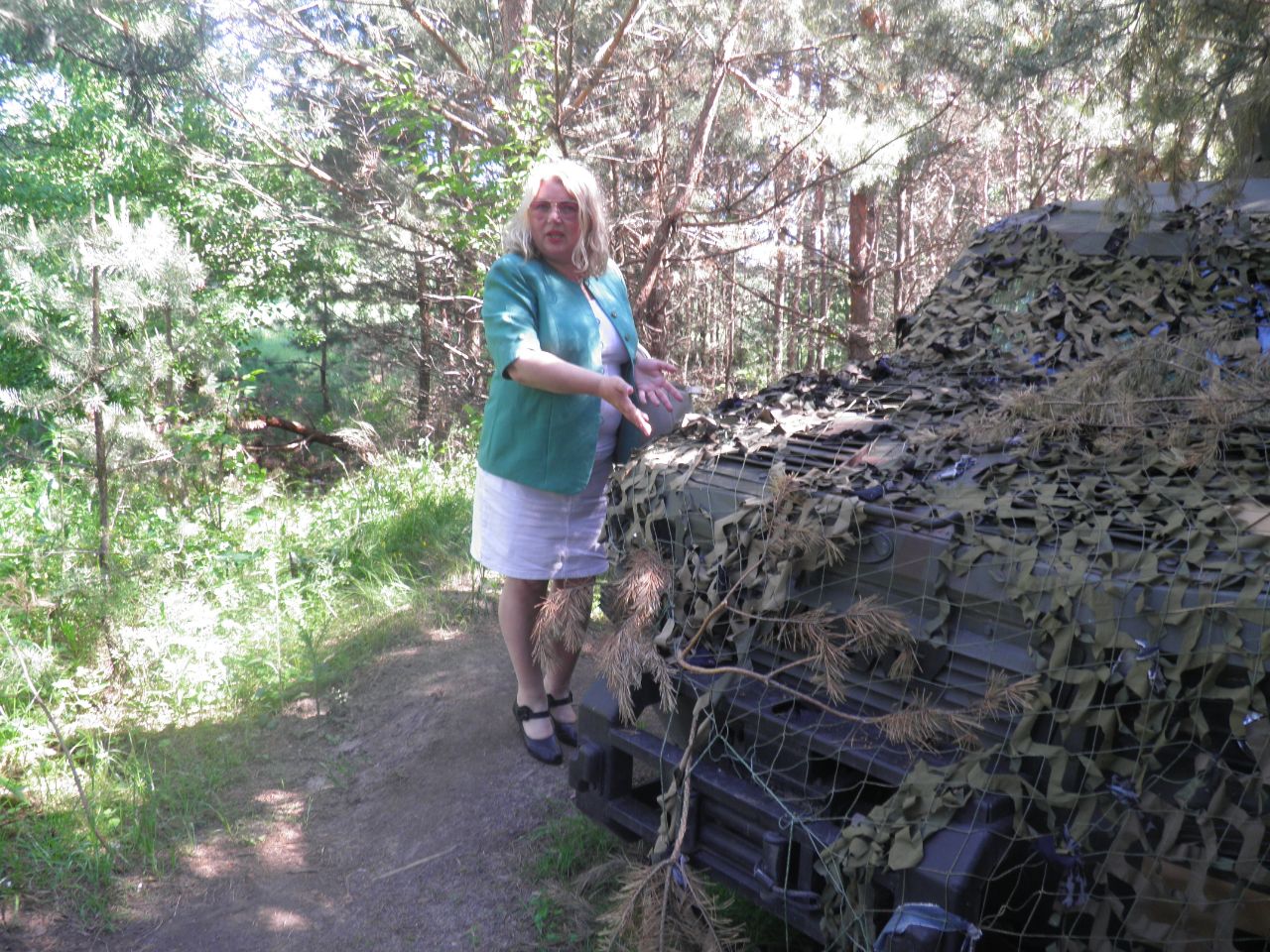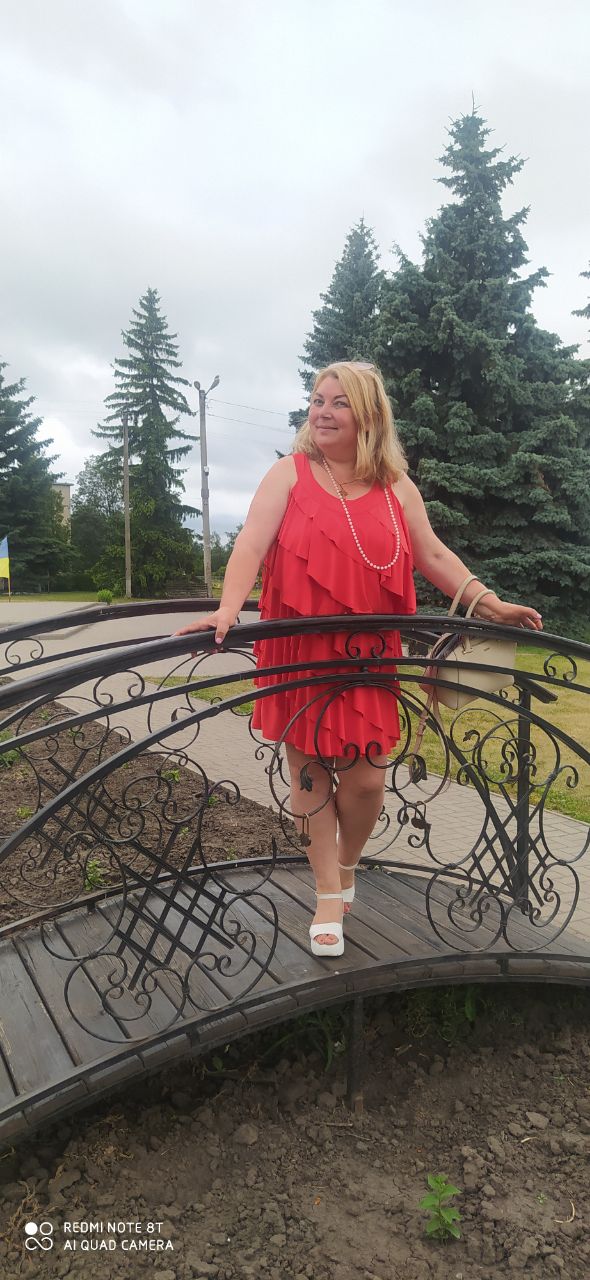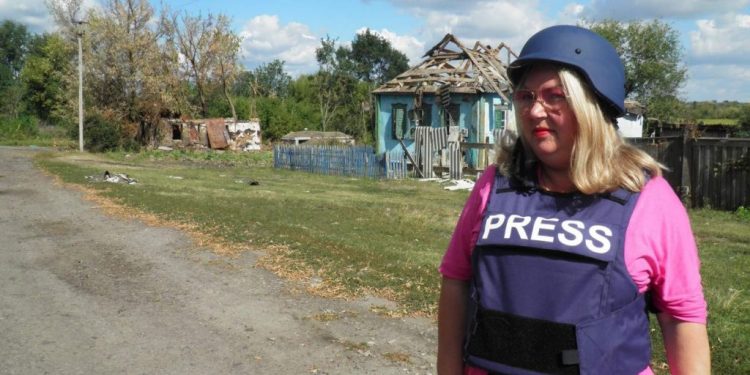To avoid freezing in the cold, she learned to chop wood. To ensure her children didn’t starve, she walked 10 kilometers from home to get milk. To prevent her son’s heart from stopping, she massaged his legs in the snow in the middle of a field. This is the dramatic story of journalist and mother of three Oksana Kovaliova from Sumy.
“When the siren wailed, my child would start having a heart attack.”
On February 24th, Oksana was at her parents’ house. The day before, she had come to celebrate her father’s birthday, and the next morning, she was getting ready to leave for work in Sumy. A taxi was about to arrive at her doorstep.
— I planned to reach the bus station and catch a bus to Sumy. I called the driver and asked where he was, and his response was, ‘I won’t come – it’s war.’ I was stunned. And then my mother told me that my brother, Alexander, who serves in the Armed Forces of Ukraine (he was on the Chernihiv front), had been wounded. His vehicle had been blown up, and he had suffered severe burns and leg injuries; they rushed him to the hospital. My mother called us to come to her, and so, in shock and stress, I spent the first half of the day with my two children in the basement at my parents’ house, — recalls Oksana. — On the first day, there was still not a full realization of everything that was happening. I decided not to stay with my mom and dad but to go with my children to our house. It’s located in the suburbs, essentially in the fields. We used to visit a few times a year, but we lived in Sumy all the time. So, the house was not prepared for normal living conditions. I spent a month and a half there with my children.
Living under almost constant air sirens was terrifying for Oksana. It seemed like the rockets were flying right at her. But what scared her the most was the uncertainty of what would happen next.
— For 30 years, I worked tirelessly to support my three children. My daughter is grown, and I have two boys, aged thirteen and six, with the younger one having a disability. All my hard work suddenly came to a halt in a single day. I received calls and messages from various publications informing me that they were suspending operations and collaborations. Some couldn’t pay salaries, others evacuated, and some closed their offices. As someone who once managed to release a newspaper from a maternity ward, this was a shocking turn of events. I couldn’t fathom the idea of not publishing the next issue of my publication as an editor, — explains Oksana.

Limited savings sustained Oksana and her children for just one month. Most of the money went into fixing up their cold, unoccupied home with frozen pipes. Returning to her parent’s house wasn’t an option due to the strenuous journey, which could be risky for her younger son with a heart condition.
— When the siren wailed, my child would start having a heart attack: he would tremble, and his lips turned blue. I thought he would die in my arms,— Oksana shares, barely holding back tears.
A real struggle for survival began, and in it, Oksana’s greatest fear was losing the most precious thing in the world – her children.
— I bought firewood with my last money and chopped it myself. At the beginning of the war, a dairy farm was pouring milk on the roadside because the processing plants couldn’t collect it. Shocked by this, people asked to give them the milk. So, for several weeks, I walked ten kilometers to the farm from my house to get milk. Once, I took my son with me. He almost died on the way; he lay down in the snow and said he couldn’t go any further. I simply took off his shoes on the road and massaged his feet — recalls the mother of many children, tears in her eyes. — My son said, ‘If I die, it’s better to die of hypothermia than from heart failure right now.’ And that day, we waited in line for three hours, but we didn’t have enough milk… The next day, a compassionate woman brought us some and shared. She had been standing in line for it herself for three days.
However, Oksana received humanitarian aid twice, which you could say was lucky. She received grains, potatoes, and oil. And even that was thanks to her “past merits.”
— I got help through an acquaintance who used to be a regional deputy and company director, and I worked as her press secretary. Our main income was modest – my disabled son’s pension, UAH 1900. In early March, I bought a scooter for him because he was too weak to walk. I put him on the scooter and dragged it through the snow as we went on ‘raids’ for food. Sometimes, we’d leave in the morning for bread and return in the evening, feeling lucky to ‘score’ a loaf.
Of course, Oksana tried to evacuate with her children, but the buses were not running, and Sumy was 120 kilometers away.
— Once, I found information on the internet about an organization that helps journalists with children evacuate, and I wrote to them,— recalls the media worker. — They called back and were ready to take us first to Lviv and then somewhere in Europe. I took food on credit to have something to feed the children on the way. I called our doctor to consult, but he told me that my younger son was unlikely to withstand the long journey. Then I talked to a priest I knew, and he said roughly the same thing. In the end, we unpacked our bags and stayed at home quietly… to face whatever fate had in store for us.

Venturing into Velyka Pysarivka
In spring, Oksana started looking for a job as she couldn’t bear to see her hungry children.
— One day, I stumbled upon a job opportunity on the National Union of Journalists of Ukraine (NUJU) Telegram channel,— Oksana explains. — I saw a vacancy for a correspondent position in ‘Vorskla’ newspaper, based in Velyka Pysarivka, a place known for its daily military reports. I initially planned to work remotely and messaged Oleksii Pasuyz, the chief editor, highlighting my 30 years of experience and desperate need for a job. However, Oleksii insisted on an on-site presence. I initially declined to avoid seeming reckless for bringing my children to a ‘hotspot.’ Later, I regretted this decision. Oleksii offered me a small sum as a charitable contribution. During our conversation, he took my card number and transferred UAH 2000! This was unusual for me as I was used to relying solely on myself. I received the money and promised to work it off by writing an article. My first intended piece was about a newborn girl whose parents had abandoned her but wanted to adopt her as guardians. However, I delayed publishing it while they formalized the guardianship. In the meantime, I stumbled upon a story about a surviving teapot in Velyka Pysarivka, in a century-old ruined house. I decided to write a touching article about it. Despite being 300 kilometers away, I managed to gather all the necessary information, speak to those involved, and write the article in a single day. I sent it to Oleksii, who was moved to tears by its beauty, and he immediately offered me paid writing assignments.
Initially, Oksana worked from Hlukhiv and then ventured into Velyka Pysarivka. It was there that she found herself on the front line.
— It was in June, and everyone was surprised that I had come, while male photographers from various publications refused to go to this location. I saw that despite its proximity to the frontlines, people in Velyka Pysarivka were still living there, the newspaper was stable, and I felt that I wasn’t afraid. I took my children and went there to work. The editor-in-chief created a workspace specifically for me and even assigned me the position of the head of the investigative journalism department. I remember how Oleksii Pasiuha and the border guard chief drove me to the front line, where the border with Russia was and where the tower stood. I went there and sent the material to ‘Zaborona’ magazine,— the journalist recalls.
Later, thanks to the National Union of Journalists of Ukraine, Oksana received a helmet, a bulletproof vest, and a first-aid kit.
— In ‘Vorskla,’ I worked well, and other job offers from various publications started coming in. I realized that I liked everything. I’d rather work in a region that’s ‘hot’ but earn money and know my children are well-fed than sit in relatively safe Sumy with hungry kids, — Oksana shared her thoughts.
Despite the ongoing war, Oksana enthusiastically discusses her future plans, closely tied to the newspaper and the team that saved her and her children.

— In just 10 months, I’ll be eligible for retirement due to my disabled child. However, I’ve decided to work as long as possible. I’m fully committed to ‘Vorskla’ newspaper, which saved me from starvation,— says Mrs. Kovaliova. — Journalists are essential on the front lines. Unable to go to the front with my children, I’m on the information front lines. Living in a border community, I gather topics for regional and national publications, where I regularly publish my articles. Journalism is my passion, and I’ve chosen the right path, driven by my desire to provide for my children.
Right now, the ‘Vorskla’ newspaper is preparing for printing in extremely difficult conditions. Usually at night when there’s electricity. We simply warm the office with a stove, cook potatoes in military uniforms, and write articles under the crackling sound of firewood.
Oleksii Pasiuha, our editor-in-chief, activist, volunteer, and patriot, received the ‘For Merits’ medal for his active stance, volunteer work, and the newspaper’s continuous operation since the beginning of the war. He printed a frontline newspaper in a postcard format on his printer during constant shelling (because they were cut off from printing presses, and Ukrposhta [the national postal service of Ukraine] didn’t work in the gray zone), all while the enemy was just 4 kilometers away from the editorial office! I admire his dedication to the newspaper cause, and we share the same values. I’m proud to have a leader like him,— emphasized correspondent Oksana Kovaliova with gratitude.
This series, titled Executed Free Speech, is created as part of a project Drawing Ukrainian And International Audience’s Attention To Serious Violations Of Human Rights And Crimes Against Journalists And Mass Media By The Russian Federation, which is performed by the National Union of Journalists of Ukraine, with support from the Swedish non-profit organization Civil Rights Defenders.
JOURNALISTS ARE IMPORTANT. Stories of Life and Work in Conditions of War is a cycle of materials prepared by the team of the NUJU with the support of the Swedish human rights organization Civil Rights Defenders.
#CRD

 THE NATIONAL UNION OF
JOURNALISTS OF UKRAINE
THE NATIONAL UNION OF
JOURNALISTS OF UKRAINE
















Discussion about this post